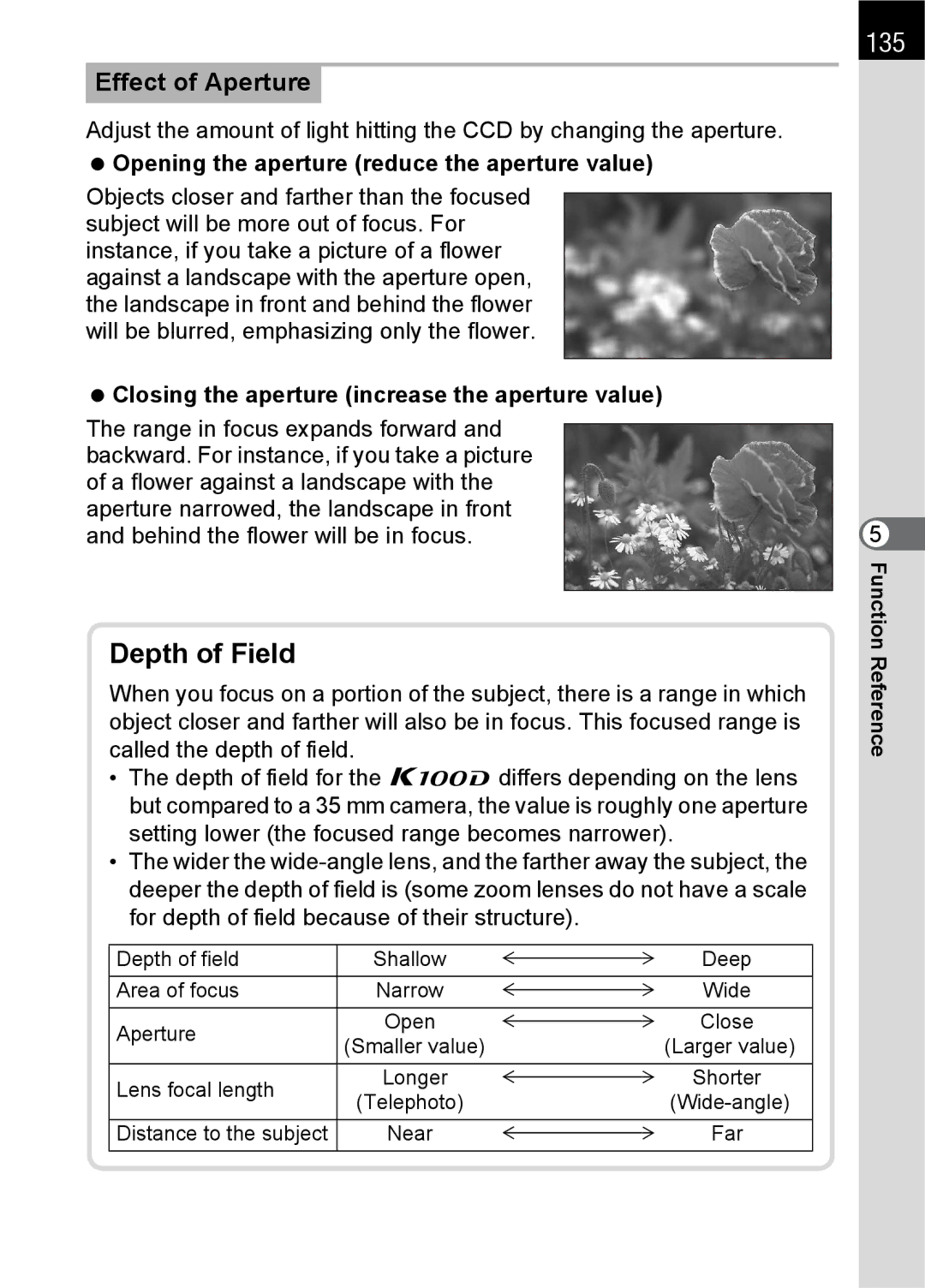
Effect of Aperture
Adjust the amount of light hitting the CCD by changing the aperture.
Opening the aperture (reduce the aperture value)
Objects closer and farther than the focused subject will be more out of focus. For instance, if you take a picture of a flower against a landscape with the aperture open, the landscape in front and behind the flower will be blurred, emphasizing only the flower.
Closing the aperture (increase the aperture value)
The range in focus expands forward and backward. For instance, if you take a picture of a flower against a landscape with the aperture narrowed, the landscape in front and behind the flower will be in focus.
Depth of Field
When you focus on a portion of the subject, there is a range in which object closer and farther will also be in focus. This focused range is called the depth of field.
•The depth of field for the qdiffers depending on the lens but compared to a 35 mm camera, the value is roughly one aperture setting lower (the focused range becomes narrower).
•The wider the
Depth of field | Shallow |
| Deep |
| |||
Area of focus | Narrow |
| Wide |
| |||
Aperture | Open |
| Close |
| |||
(Smaller value) |
| (Larger value) | |
|
| ||
|
|
|
|
Lens focal length | Longer |
| Shorter |
| |||
(Telephoto) |
| ||
|
| ||
|
|
|
|
Distance to the subject | Near |
| Far |
|
135
5 FunctionReference
